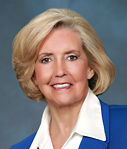Twenty-three cents isn’t enough money for candy vending machines, but the amount — if added per hour to women’s paychecks — would make a significant difference toward workplace equality and independence.
That’s what equal pay advocate Lilly Ledbetter wants as she travels the country to urge women to seek comparable wages as men.
“The more the word gets out, the more young people can make changes so it doesn’t happen to them,” she said. “It’s unbelievable … and just the tip of the iceberg.”

Ledbetter will deliver the annual Vivian R. Shaw Lecture at 7 p.m. Oct. 2 in Rackham Auditorium, 915 E. Washington St. The lecture, which is presented by the Institute for Research on Women and Gender (IRWG) and the Women’s Studies Department, is free and open to the public.
Ledbetter has spent decades fighting for pay equality. Full-time employed women earn 77 cents nationwide for every dollar that a man receives at work, according to the National Women’s Law Center.
In Michigan, the wage gap is larger than it is for women in other states: 74 cents for every dollar paid to a man working full-time in 2010.
“If you start out with less money, you’ll never make up the difference,” she said. Thus, if the woman earns $1,000 less per month than her male counterpart, 25 to 30 years later at retirement it can add up to nearly $1 million more for men, factoring in interest rates and savings, she said.
Ledbetter, one of the first women hired at management level, estimated that she earned 40 percent less than her male counterparts at Goodyear Tire & Rubber Co. in 1979. The pay difference caused her overtime pay to be short, as well as retirement, 401(k) and Social Security — although she didn’t learn about the differences until nearly two decades later. An anonymous note indicated that she received thousands of dollars less per year than the men in her position.
She filed a sex discrimination case, which she won but lost on appeal. Over the next eight years, her case made it all the way to the Supreme Court, where she lost again: the court ruled that she should have filed suit within 180 days of her first unequal paycheck — despite the fact that she had no way of knowing that she was being paid unfairly all those years.
Her nationwide effort for pay equality didn’t go unnoticed. In 2009, she became the namesake of Barack Obama’s first official piece of legislation as president: the Lilly Ledbetter Fair Pay Act.
Equal pay takes on greater importance for women because many outlive men. If they’ve worked full-time for most of their lives and their husbands die, they might not have enough money for retirement, she said. In some cases, female seniors must move in with their children, unable to stay independent due to financial conditions.
For their part, some employers are taking note that they can create a better environment when men and women receive equal pay. However, a large number of companies are not willing to disclose what they pay men and women doing the same jobs — creating an environment where unequal pay might occur.
“Things are changing, but changing very slowly,” she added.
Ledbetter said women must do their homework before the hiring process. For example, they can research economic and employment websites for data about the average salaries for certain jobs. If the job offer includes a salary less than the national average, women must aggressively negotiate fair, competitive salaries and benefits, she said.
The Shaw Lecture is co-sponsored by the Center for the Education of Women, Gerald R. Ford School of Public Policy, Communications Studies, School of Social Work, Law School, Political Science, and American Culture. Established in 1997 by U-M alumna, Ellen S. Agress, in honor of her mother, this annual lecture addresses real world issues facing women and people outside the gender binary.

